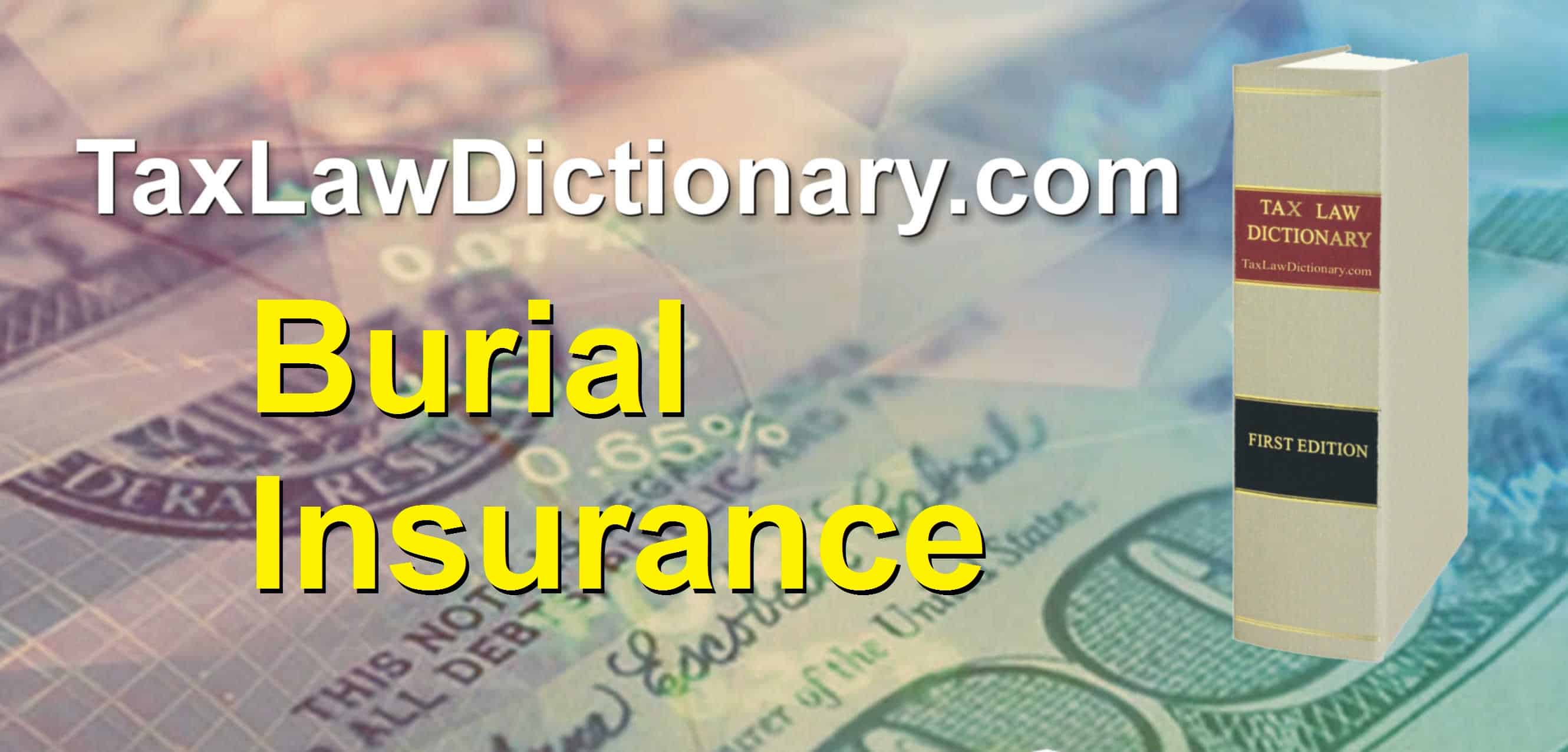
Tax Law Term “Burial Insurance“
Insurance to cover costs directly relating to a funeral. Services may include embalming, cosmetology, visitation, service at funeral home, transfer of remains, hearse, vault, casket, flowers, grave space, monument or marker and opening and closing the grave. The average cost of a funeral and burial range between $7000 and $8,000. In connection with estate taxes, funeral expenses are allowed as a deduction from the value of the gross estate.
Burial insurance is a very old type of life insurance which is paid out upon death to cover final expenses, such as the cost of a funeral. The Greeks and Romans introduced burial insurance c. 600 CE when they organized guilds called “benevolent societies” which cared for the surviving families and paid funeral expenses of members upon death. Guilds in the Middle Ages served a similar purpose, as did friendly societies during Victorian times. Wikipedia
Burial insurance is a type of life insurance used to pay for funeral services and merchandise costs after a death. The policy can be bought online or by telephone without waiting for an insurance-company doctor exam. In fact, burial insurance does not require a medical exam at all. Applicants are asked about age, smoking history and whether they have serious conditions. For some policies, acceptance is guaranteed. Others require a two-year premium-paying period before collection is possible and only provide coverage to 100 years of age. investopedia
